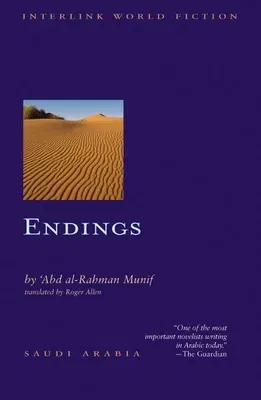"Drought. Drought again! When drought seasons come, things begin to
change. Life and objects change. Humans change too, and no more so than
in their moods!"
It is not long before the reader of Endings discovers that this
drought is not just an occasional but an enduring condition faced by a
community on the edge of the desert, the village of al-Tiba. Nowhere do
we discover exactly where this village is on the map of the Arab world
and al-Tiba thus becomes a symbol for all villages facing nature unaided
by modern technology. We hear of Abu Zaku, the village carpenter; of the
Mukhtar; and above all of 'Assaf and his dog; and of the creatures that
share the life of the community. But it is the people of al-Tiba as a
group who discuss and argue about their past, present, and future, and
the forces of change. The portrayal of the desert environment and its
customs is as vivid as the hunting of animals and the sandstorm that led
to 'Assaf's death. A series of stories accompanies the wake that follows
-stories that borrow from the pre-Islamic tradition of expressing a
particular vision through descriptions of animals.
Endings is striking not only for its setting and style of narrative,
but for being a vivid commentary on the emergence of the modern city and
its urban middle class.

